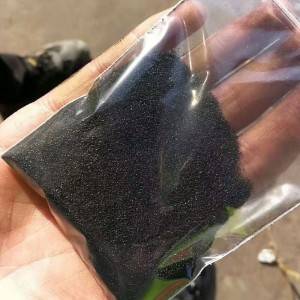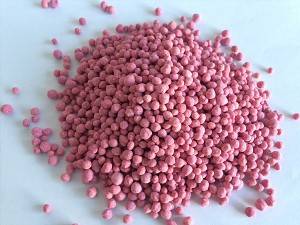POTASSIUM HUMATE
Products
-

Potassium Humate
Potassium humate is a strong alkali and weak acid salt formed by ion exchange between weathered coal and potassium hydroxide. According to the ionization theory of substances in aqueous solutions, after potassium humate is dissolved in water, potassium will ionize and exist alone in the form of potassium ions. Humic acid molecules will combine with hydrogen ions in the water and release hydroxide ions at the same time, thus potassium humate solution Significantly alkaline. Potassium humate can be used as an organic fertilization. If the brown coal humate has a certain anti-flocculation ability, it can be used as a drip fertilizer in some areas where the water hardness is not high, or it can be combined with other non-acidic nitrogen and phosphorus nutrients. Elements, such as monoammonium phosphate, are used in conjunction to improve the overall use effect. Promote the development of crop root system and increase the germination rate. Potassium fulvic acid is rich in a variety of nutrients. New roots can be seen after 3-7 days of use. At the same time, a large number of secondary roots can be increased, which can quickly improve the ability of plants to absorb nutrients and water, promote cell division, and accelerate crop growth. -

kieserite
Magnesium Sulphate as a main materials in fertilizer, magnesium is an essential element in the cloriphyll molecule, and sulfur is another important micronutrient is most commonly applied to potted plants, or to magnesium-hungry crops, such as potatoes, roses,tomatoes, lemon trees, carrots and so on.Magnesium Sulphate also can be used in stockfeed additive leather, dyeing, pigment, refractoriness, cereamic, marchdynamite and Mg salt industry.


